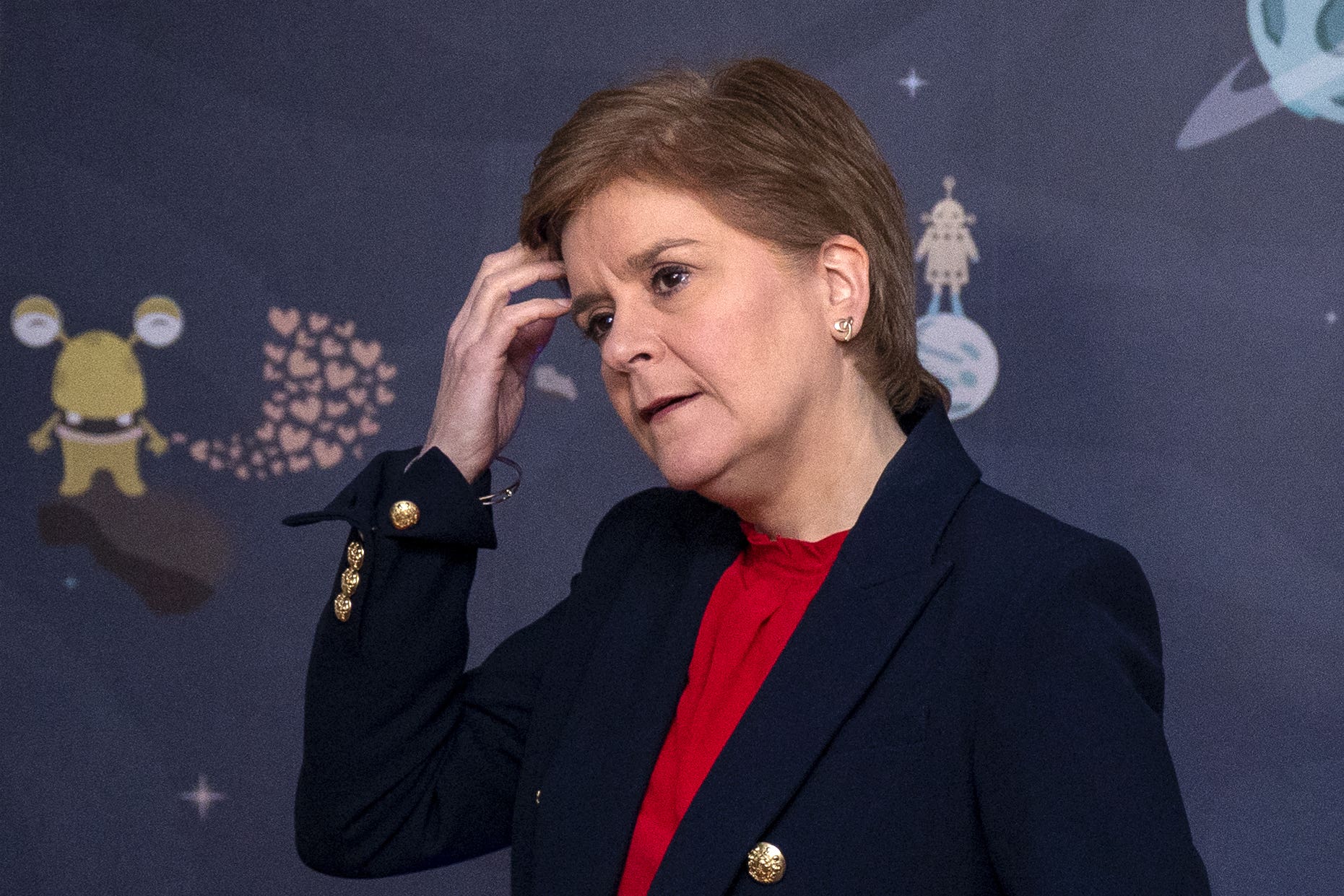Sturgeon calls for ‘compromise on both sides’ to end teachers’ pay dispute
The First Minister spoke out as a fresh wave of industrial action in Scotland’s schools got underway.

Your support helps us to tell the story
From reproductive rights to climate change to Big Tech, The Independent is on the ground when the story is developing. Whether it's investigating the financials of Elon Musk's pro-Trump PAC or producing our latest documentary, 'The A Word', which shines a light on the American women fighting for reproductive rights, we know how important it is to parse out the facts from the messaging.
At such a critical moment in US history, we need reporters on the ground. Your donation allows us to keep sending journalists to speak to both sides of the story.
The Independent is trusted by Americans across the entire political spectrum. And unlike many other quality news outlets, we choose not to lock Americans out of our reporting and analysis with paywalls. We believe quality journalism should be available to everyone, paid for by those who can afford it.
Your support makes all the difference.There needs to be “compromise on both sides” if a deal is to be done that will bring strikes by teachers in Scotland to an end, Nicola Sturgeon has said.
The Scottish First Minister spoke out as industrial action continued to close schools north of the border.
On Monday both the EIS – the largest teaching union in Scotland – and the Association of Headteachers and Deputes in Scotland (AHDS) began a rolling 16-day programme of strike action.
Teachers will strike in two local authority areas each day, with schools in Glasgow and East Lothian, which are shut to all pupils apart from those taking prelim exams, the first to be affected.
Ms Sturgeon, speaking at a briefing for journalists in Edinburgh, conceded: “Of course, I am concerned about industrial action in our schools, because I don’t want to see that impact on young people and I don’t want to see teachers having to take industrial action.”
But she stated her Scottish Government was “not a Government that simply digs our heels in in industrial disputes”, citing talks which have so far prevented strikes by NHS staff north of the border as proof of this.
Ms Sturgeon said: “We are a Government that seeks to find resolutions to disputes, a Government that tries to treat public sector workers as fairly as we possibly can, to maximise pay increases within the resources we have got, and to avoid industrial action.”
She insisted ministers were ready and willing for further talks with teachers’ leaders, but added: “As we also see in the NHS, it does involve compromise on both sides. I hope we will see that compromise on both sides.”
Andrea Bradley, EIS general secretary, said teachers were prepared to strike into the new academic year if necessary.
The union’s current mandate for industrial action expires in May and Ms Bradley has said it would be a “matter of deep concern” if exams were impacted by industrial action.
Speaking at a rally at Glasgow’s City Chambers, she said: “If the action were to be ongoing towards the exams, then that would be a matter of deep concern to all, to Cosla and the Scottish Government, which says education is its number one priority.
“We would hope that this dispute is brought to a much swifter resolution than that but that’s not to say that if there isn’t a resolution, that our members will not be prepared to take action beyond that.
“The mandate lasts until May and it may be that we have to ballot members once more for another mandate for strike action into the new academic session – but we hope it won’t come to that.”
Talks on Thursday between the Scottish Government, local authority leaders and teaching unions failed to resolve the pay dispute.
Unions have rejected a pay offer which would see most teachers receive a 5% wage rise, although the lowest earners would get an increase of 6.85%.
Scotland’s Education Secretary Shirley-Anne Somerville has insisted the 10% teachers are demanding is unaffordable.
The EIS has now announced a further 22 days of strike action, starting at the end of February, with union general secretary Andrea Bradley saying there was a “growing frustration” from teachers that previous talks had failed to result in an improved pay offer.
She said the highest rate of the pay offer – 6.85% for the lowest paid – applies to just 8.4% of teachers, many of whom fail to secure permanent work after their probationary year.
Ms Somerville said it “disappointing” the EIS had escalated its action.
She stated: “Strikes in our schools are in no one’s interest – including for pupils, parents and carers who have already had to deal with significant disruption over the past three years.
“It is disappointing that the EIS has proceeded to escalate industrial action – we are continuing to urge teaching unions to reconsider their plans while talks are ongoing.
“Recent discussions have been constructive. There has been a shared understanding that talks have been focused on discussing potential areas for compromise – not on tabling a new offer at this stage.
“To date we have made four offers, all of which have been rejected, but we remain absolutely committed to reaching an agreement on a pay deal that is fair and sustainable for all concerned.”
After talks on Thursday failed to resolve the issue, Katie Hagmann, Cosla resources spokesperson, said: “Cosla leaders are clear that given the financial pressures being faced, it remains the case that the 10% ask of the trade unions remains unaffordable and therefore we still remain a distance apart in terms of a settlement.”